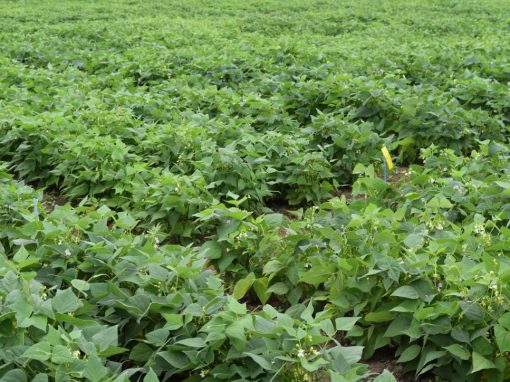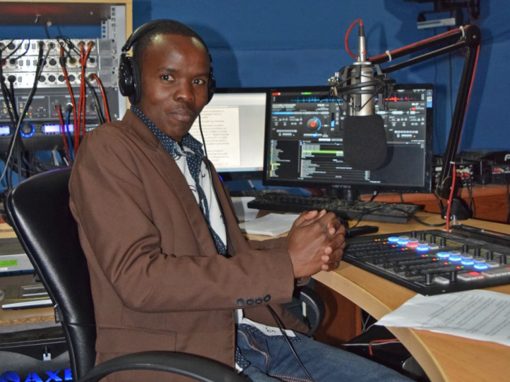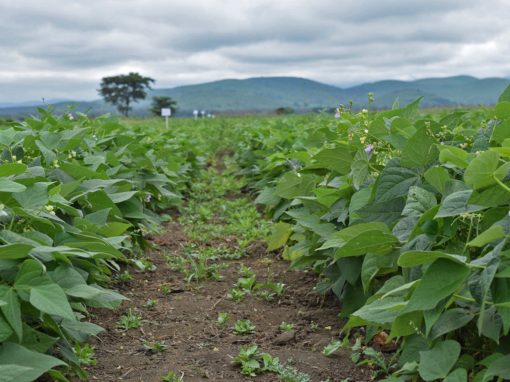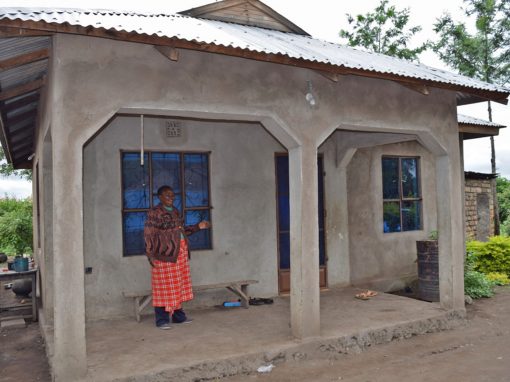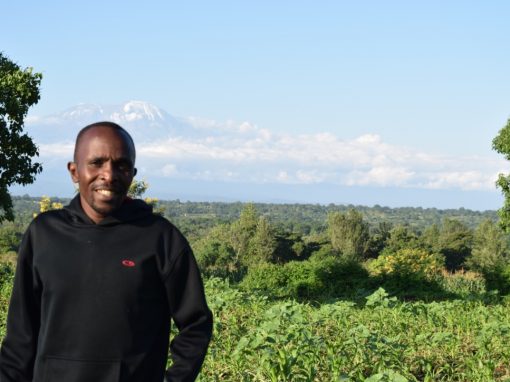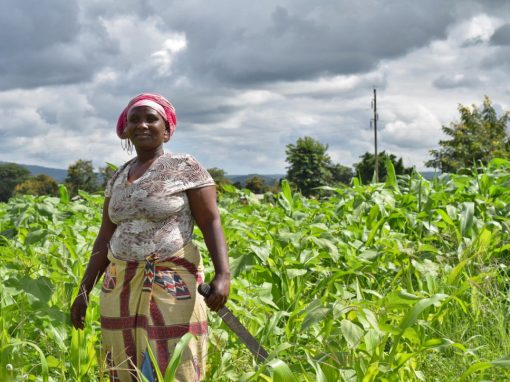Female farmers: Breadwinners
In Tanzania, it is the women who put food on the table. They work longer hours than men, and are largely responsible for both growing the food and cooking it, but land ownership laws make it increasingly difficult for them to get ahead.
Esther Ramadan cannot afford to slow down, even for a few minutes. It’s late morning on a Wednesday in June, and as the primary income-earner for her family, she must tend to the crops on her small farm.
Behind a solitary single-floor building, occupied only by a barber shop, on the side of a busy highway, on the other side of a shoddy barbed-wire fence, down a narrow dirt path past several plots of land, Ramadan works in her portion of the field.
She is never called Esther. She took on her husband’s name until she gave birth to their first son, whom they called Musa. He’s 14, and not since his birth has Esther been called anything but Mama Musa. Her identity is in being a mother, and for her children she works seven long days a week.
Her three-acre plot of land used to take a week just to weed, but it takes her double that now that her husband has taken over the barber shop at the side of the road, so she doesn’t have any help.
“I will sell some, and some is for food,” she said.
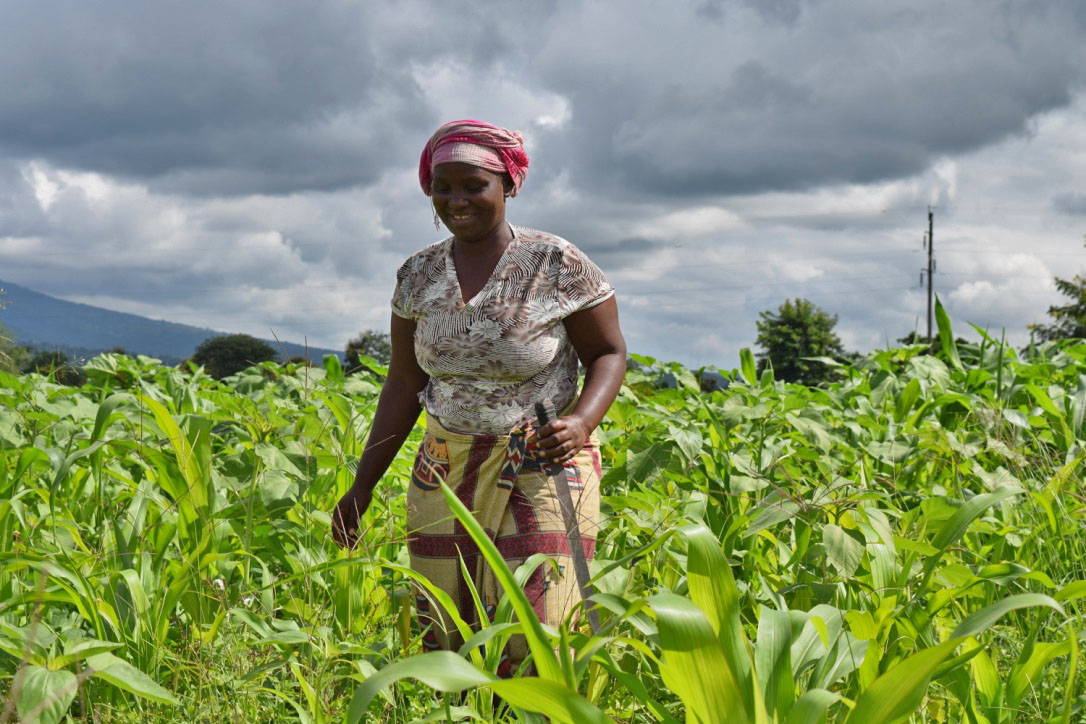
She has two cows to pull the plow, which is also hers. She has loyal local customers who know her and visit her to purchase her beans, but mostly her business consists of anything she can sell from a stall on the side of the road in front of the barber shop. She doesn’t have any method of transportation to take her and her beans to a market.
Mama Musa’s story is a typical one for rural smallholders in Tanzania, where it is mostly women who work in the fields and sell the crops to support the family.
According to the Pan-African Bean Research Alliance (PABRA), “in sub-Saharan Africa, it is the women who put food on the table.”
PABRA, which receives Canadian government funding to research climate-smart and disease-resistant bean varieties, places a particular emphasis on female farmers.
Women are typically the ones who do both the cooking and the farming, but do not own land, and transfer of land ownership is very difficult. Most land is owned by men and is then passed on to male heirs or other relatives when the man dies. Purchasing new land is an arduous process. Therefore, despite the fact that women are doing most of the work, they often only gain ownership of land if and when their husband dies or their sons are not old enough to take over, and even then it is typically in a caretaker capacity.
In northern Tanzania, according to the Food and Agriculture Organization (FAO), 67 per cent of the landowners are men, and only 33 per cent are women. In addition, much like Mama Musa’s property, 93 per cent of plots are smaller than five acres, and of plots larger than that, only 11 per cent are owned by women.
“Women are less likely than men to own land or livestock, adopt new technologies, use credit or other financial services, or receive education or extension advice,” states a 2014 FAO report. “In some cases, women do not even control the use of their own time.”
In agriculture, the mean wages of women are about three times lower than those of men, according to the FAO, so women are typically hired more often as labourers, taking their time and energy away from their own farms.
Although Mama Musa’s land is owned by her husband, she is the one harvesting the crops for both food and income.
Grace Amanzi is a widow who has been farming four different types of PABRA bean varieties for about three years. The land she farms belonged to her parents, until her husband inherited it when they got married, and when he died in an accident about 16 years ago, she took over the farming responsibilities until her son came of age.
Her three children are 17, 23, and 24, and Amanzi covers the cost of all of their educations. Her husband died shortly after her youngest was born, so since then she’s been farming as her sole income to support her family.
She grows primarily beans and maize, like most subsistence farmers in Tanzania, but in the few years she’s been making more money by selling PABRA beans, she’s been able to afford branching out to also grow tomatoes and eggplants.
“The best thing is it’s for my children,” she said. “I am able to support them.”
“Their schools also demand crops for my children’s lunches, so I am able to provide that,” she added.
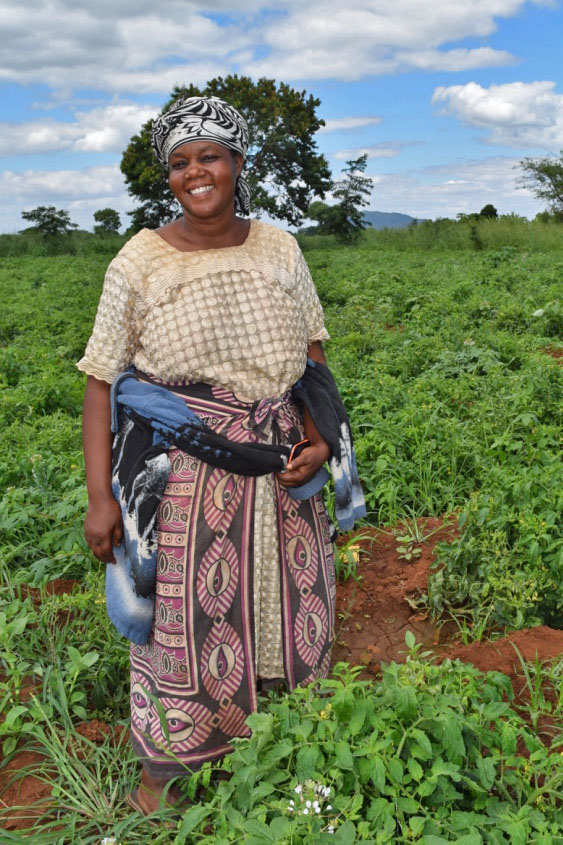
Jean-Claude Rubyogo, a seed systems specialist for PABRA based in Arusha, Tanzania, said “gender is central to bean research,” and that PABRA endeavors to prioritize women in every aspect of its work in Tanzania.
According to Rubyogo, East Africa has the highest per capita bean consumption in the world, so there are societal consequences at every point of the value chain, from seeds to consumption.
For example, he said, different beans are used for food than for canning, and household tasks and decisions are more often the purview of women than men, so PABRA takes into consideration the female preferences for colour, shape, texture, and taste of beans when developing new varieties.
Mama Musa may want beans that will generate more income, and Amanzi may want beans that are more nutritious, or vice-versa.
Rubyogo added that whereas men are typically interested in earning an income for the household, women provide most of the labour, so if given the choice, men would choose marketability over food security, and women would likely choose the opposite.
Typically, women who work in the field also do the lion’s share of the childrearing, and there are other aspects of having beans as a diet staple that impact day-to-day living.
According to the International Fund for Agricultural Development, in Africa, women typically work 12–13 hours more per week than men, but that work is considered “invisible,” and is unpaid. And according to the Evans School of Public Affairs at the University of Washington, women in Tanzania typically work 12–16 hours a day, compared to men who work about half that.
Often, they don’t physically have the time to invest in new endeavors or update their systems or equipment.
In Tanzania, because of limited resources, women hire less labour than men, which contributes to their time-burden overload.
Beans take hours to cook, and most rural women cook over a fire.
Rubyogo said PABRA has been pre-cooking beans to save women the time, but they come at an added expense.
PABRA, which operates in 30 countries worldwide, also requires a minimum representation of 30 per cent women in its upper-levels of coordination, from its coordinating team to regional networks.
Farm Radio International, a Canadian-based not-for-profit which seeks to fight food insecurity and poverty through educational radio programming, works closely with PABRA in Tanzania by using its farming experts on their airwaves.
Farm Radio, for its part, ensures that 50 per cent of its programming is geared toward women, and that 50 per cent of the questions answered on air by experts are submitted by women.
Mary Sengelela, a Farm Radio employee in Arusha, said there remain complications even in implementing a quota like that. For example, she said, many men will call in the place of their wives or mothers to ask questions of the radio program, as opposed to letting women participate themselves.
Farm Radio and PABRA both prioritize the needs of women in their programming, but socio-economic restraints make progress slow.
Mama Musa said that if she plants properly, she can harvest three times what she plants, meaning if she plants two one-gallon cans worth of beans, she will harvest enough to fill six cans. She doesn’t plant properly, however. She does not plant in clear rows, dig trenches to retain rain water, or practice crop rotation to keep the soil rich in nutrients.
Nor does she use PABRA beans or inputs.
She’s been farming since childhood, but few outreach workers have approached her, and she’s been daunted by the cost of implementing the products of those who have.
She’s not alone. In fact, she’s part of the majority.
“Rural women are subjected to constraining socio-cultural norms, and tend to be more disadvantaged than men in their access to assets, resources and services, including education, health care, credit, technology, agricultural inputs, extension services and markets,” states the 2014 FAO report.
Although progress may be slow, the efforts of PABRA and Farm Radio are felt, even on a farm-to-farm basis. Mama Musa may not plant improved bean varieties, and she may not implement proper agronomic practices, but Amanzi does, and because of that, she’s been able to support her children and pay for them to go to school.
Click above to read the next part of the story, or click below to navigate through different chapters.
